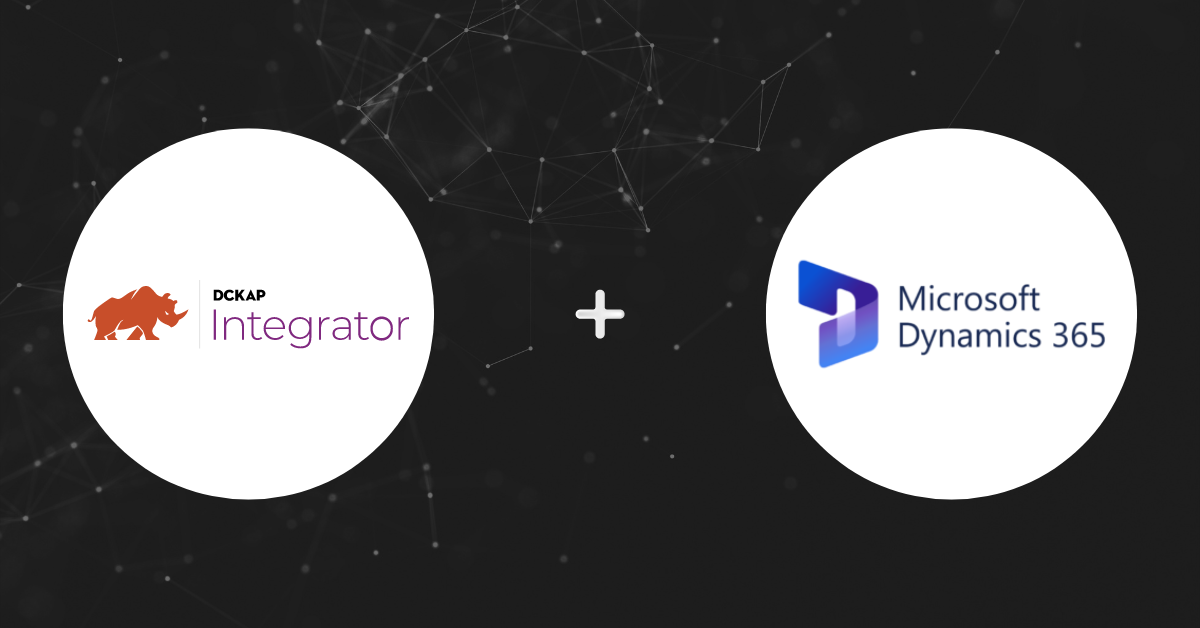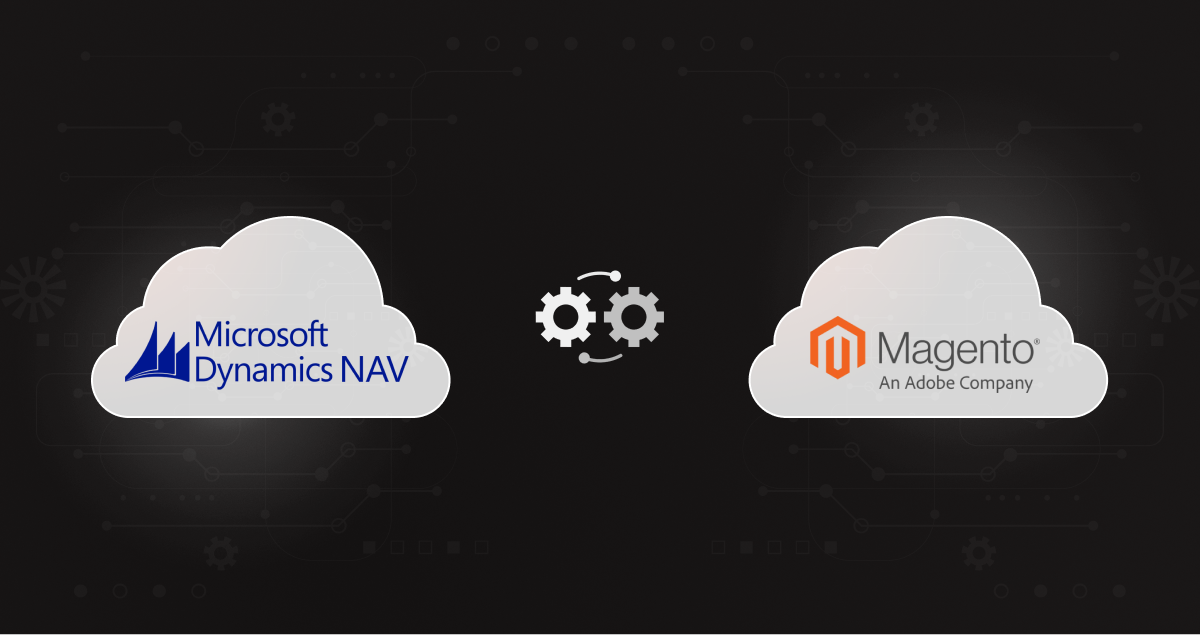Integrating your Microsoft Dynamics ERP can ensure the timely flow of data from your ERP solution (Enterprise Resource Planning) to other critical systems including your ecommerce platform, CRM system (Customer Relationship Management) and more. From ensuring timely customer support to streamlining your business processes, improve customer experiences, and much more.
Microsoft Dynamics integration can offer many advantages, and this article will help get you up to speed with all that you need to know.
Microsoft Dynamics Integration: Methods To Consider
There are a few ways to integrate your Dynamics ERP with other tools. Finding the right method can depend on your requirements, the integration scenarios required, budget, resources and business size, and more. Two key integration options include:
Custom Integration
- As the name suggests, this method involves building a customized integration for the apps involved, sometimes using a combination of methods and tools to achieve the intended result.
- Allows a great deal of flexibility and control, ensuring that the integration pattern matches businesses requirements to a tee.
- Is dependent on access to skilled resources to build and maintain the integration. The overall process can prove to be costly in the long run, and is more suited to larger organizations that can absorb that cost.
| 💡 Editor’s note: Microsoft Dynamics also offers native integration for select applications. For instances where the data only needs to flow between Microsoft Dynamics and these tools, this may be an option worth exploring. |
iPaaS or Middleware
- Includes the use of a third-party integration solution to facilitate the flow of information between tools.
- iPaaS tools help build integrations that are scalable, making it easy to add more tools as the business grows. They also allow for an easy way to manage the flow of data. Low/no-code tools can even negate the need for extensive technical know-how to build integrations.
- With the many options, it allows for more options for businesses with varying budgets. Middleware options can sometimes be limited in how they can be customized and may involve subscription costs.
| 💡 Pro-tip: Seek a vendor that can help you customize the tools to your requirement. The team behind DCKAP Integrator, for example, is known for how well they customize the tool for distribution companies and offering excellent technical support. |
Benefits of Microsoft Dynamics Integration
Single Source of Information
By centralizing all data in a single, networked database, redundant data input and manual searches are eliminated, and human error is greatly reduced. Communication and information exchange can be made easier across the business, saving time, simplifying processes, and allowing for more informed decision-making.
Improved data accuracy and consistency
With Microsoft Dynamics integration with other business applications, you can ensure that data is entered correctly and consistently across all systems. This can help to improve decision-making, as well as reduce the chances of errors.
Increased efficiency & Improved Customer Service
Integration, especially with customer engagement apps, can automate tasks and processes that would otherwise be manual, saving time and money. This helps to provide employees with access to accurate and up-to-date customer information, which will ultimately improve the quality of customer service.
Greater insights At Your Fingertip
By consolidating data from multiple systems into the Microsoft Dynamics application, you can gain valuable insights into your business that can help you make better decisions. The full-fledged visibility lets you make informed decisions and ensure productivity across the department by sharing insightful data in real-time by eliminating silos.
Improved Customer Service Efforts
Each customer’s data is collected in vast numbers through Microsoft Dynamics 365 integration. It examines how audiences engage with your business, and whose communities they belong to, among other things. Its BI solution can also detect consumer moods, purchasing habits, and brand loyalty — non-quantifiable data aspects that are crucial to the sales process.
This data aids customer support representatives in handling each client engagement on an individual basis. Your salespeople can interact with consumers on a human level and propose tailored solutions without missing a beat now that all of this data is in one place.
Critical Microsoft Dynamics Integration Use Cases
Sales Order Synchronization
Most organizations are likely to consider ecommerce and ERP integration , including EvolutionX and Microsoft Dynamics integration, because of the enhanced sales opportunities that it can pave the way for. And the only way to assure a short turnaround time is to add extra resources to sync data between the two systems. Using an integrator tool, you can now easily ensure bi-directional data sync between Microsoft Dynamic 365 ERP & CRM to ensure real-time access to sale order data. Moreover, it helps to:
- Handle more orders in a day since orders are automated and much easier and faster to produce and process.
- Make order processing and fulfillment faster and more precise. And helps to ensure sales reps or customers are synced to the ERP in real-time.
- Costs of order processing and costs associated with the phone, fax, email, and paper order forms can be minimized.
eCommerce Synchronization
Many parts of your business benefit from integrating your eCommerce platform with your back-end systems:
- Maintain correct client, product, order, and shipping records and information without having to manually enter data.
- Maintain consistency in inventory levels and pricing across systems, and provide consumers with accurate information the first time.
- Turn website visits into checkouts by providing a better buying experience for customers across numerous selling channels, devices, and touchpoints.
- Provide helpful customer support by providing real-time order status information as well as product, price, and stock availability.
- Extend your business model to include new business models.
- Without disrupting established channels, sell through marketplaces or directly to customers.
- Increase employee engagement, productivity, and overall workplace efficiency by breaking down corporate silos.
- Scale more easily and respond to market changes more quickly and expand to new locations and deploy new business models.
Inventory Synchronization
Inventory management powered by ERP integration improves supply chain efficiency through end-to-end inventory analysis. It can reduce the double-handling of items and automate everyday chores like reordering as a centralized system.
Furthermore,
- By synchronizing order and shipment information, you can increase supply chain transparency.
- Inventory data that is accurate will assist decision-makers in maximizing the value of data-driven insights.
- Excess inventory, shortages, scheduled replenishment, outdated inventory, and metrics, such as average, can all be tracked and reported with accurate financial and accounting.
Business Insights Synchronization
ERP and business intelligence integration pull everything together, allowing users to turn millions of data points into clear, actionable insights. BI is no longer possible without ERP.
BI software mines ERP databases and makes it easy for stakeholders throughout the organization to consume insights via dashboards and other representations.
Meanwhile, when BI applications are connected with ERP systems, they play a significant role in strategic decision-making. With this feature, you can get real-time access to the latest sales and financial data, which helps you make better business decisions like:
- Identify opportunities and trends
- Optimize pricing and promotions
- Understand customer spend patterns
Customer Synchronization
Customer and account data are critical bidirectional sync points for your business systems. Both your shop floor and your sales staff will have quick access to client data with basic ID information, shipping history, contracts, accounts receivable, and more preserved in one solution.
Furthermore, no new account or customer data will need to be manually entered into the ERP, Supply Chain Management, or Customer Relationship Management/ CRM software systems. This saves money, and time, and eliminates the possibility of human mistakes.
Suggested Reading: Microsoft Dynamics CRM Data Integration Explained
Microsoft Dynamics Integration With DCKAP Integrator
DCKAP Integrator offers a complete iPaaS solution for integrating your Microsoft Dynamics system with different systems including other business tools, non-Microsoft products, and third-party applications. Backed by over a decade of experience and expertise working with distributors, the tool is tailor-made for their specific goals, preferred applications and tools.
Integrating Microsoft Dynamics Nav
DCKAP Integrator works well to connect your on-premises Microsoft Dynamics Nav (previously Navision). Connect the ERP in different types of integration scenarios to make your workflows work for you.
Building connections between critical apps eliminating the need for manual entry. Integrator is built with features to make the whole process much easier, including advanced mapping and modifiers, auto-scheduling, and advanced logs.
| 💡 Case study: Read how Grand Rock unlocked the power of integration by connecting their ecommerce platform with their Microsoft Dynamics Nav ERP. |
Integrating Microsoft Dynamics 365
The DCKAP Integrator enables you to quickly and easily connect your cloud ERP with a myriad of third-party applications, including those in the cloud and pave the way for house in saved time, smoother operations, and boosted revenue.
Our expert team of developers can customize the integration to best match your business requirements, and post-live, ensures you have timely and efficient support.
To know more about integration and ways to improve your business operations get in touch with us or check out our pricing plans.
Contents




